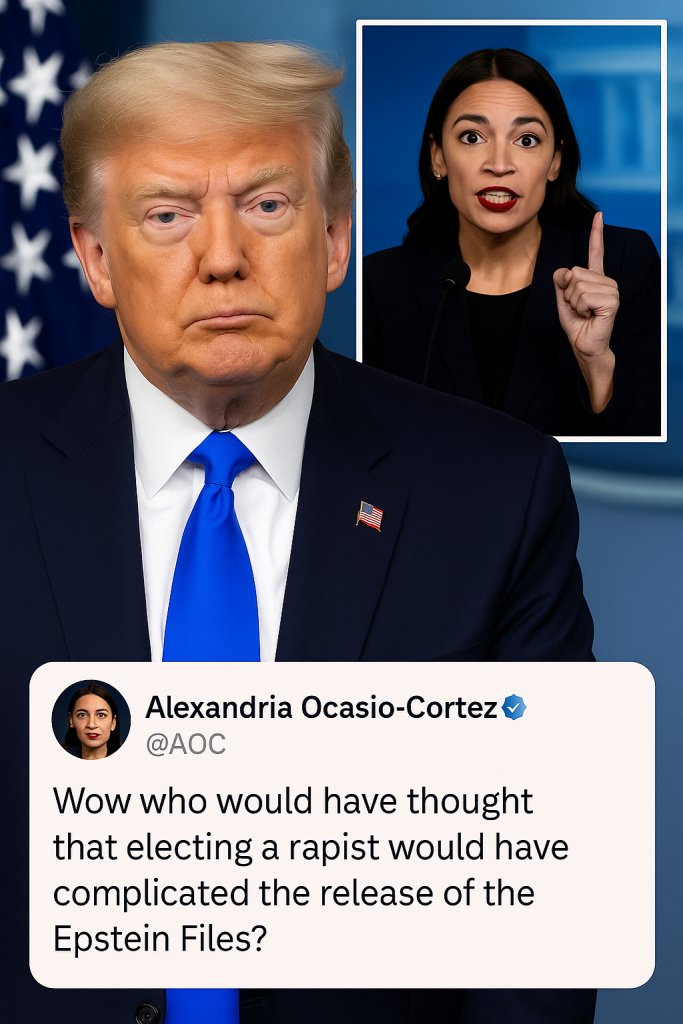Alexandria Ocasio-Cortez (AOC), the outspoken U.S. Representative, ignited a fresh wave of controversy after referring to former President Donald Trump as a “rapist” in a social media post. The remark came in connection with the ongoing political and public interest surrounding the release of files related to Jeffrey Epstein, reigniting a heated debate over defamation, free speech, and political accountability.
The post, which quickly went viral, featured an image of the Oval Office juxtaposed with a tweet from Ocasio-Cortez that read: “Wow who would have thought that electing a rapist would have complicated the release of the Epstein Files.” This incendiary statement indirectly linked Trump to allegations surrounding Epstein sex trafficking scandals, which have remained under intense scrutiny for years.
While President Trump has been publicly accused in the past of sexual misconduct by several women—a matter he has vehemently denied—he has never been criminally charged or convicted of rape. The term “rapist,” therefore, carries particularly serious legal weight, and this has drawn swift criticism from political opponents and legal commentators.
The incident has raised complex questions about the boundaries between provocative political speech and defamation. Legal experts point out that calling someone a rapist without substantiated evidence can lead to potential civil liability for defamation, especially for public figures. However, others argue that controversial statements about public officials—made in the context of politically charged topics—are often protected under the First Amendment’s free speech provisions.
Supporters of AOC insist that her comment is deeply rooted in a broader political critique rather than an act of literal accusation. They highlight the post as a reflection of the frustration many have expressed about the perceived lack of transparency and accountability surrounding the release of documents linked to Jeffrey Epstein’s crimes and the involvement of powerful figures.
On the other hand, defenders of Trump have condemned the comment as reckless and damaging, claiming it irresponsibly harms the reputation of the former president by associating him directly with the heinous criminal acts tied to Epstein’s case. Some commentators see it as part of a growing trend where politically polarizing language is pushing public discourse toward greater hostility and legal confrontations.
This episode unfolds during a politically charged period as both Trump and Ocasio-Cortez remain prominent figures in shaping upcoming election narratives. The issue of the Epstein files has become a flashpoint in debates about justice, secrecy, and the influence of elite power networks, with numerous voices demanding the release of full investigative materials.
While the post has not led to formal legal action, it underscores the volatile intersection between social media, politics, and legal boundaries in the digital age. Observers will be watching closely for any potential repercussions, including whether defamation suits might arise from such statements, and how public figures balance robust criticism with legal risks.
As the Epstein files continue to fuel national conversation, this latest comment by AOC appears to have further polarized an already divided public, raising essential questions about accountability, truth, and the limits of political discourse.



